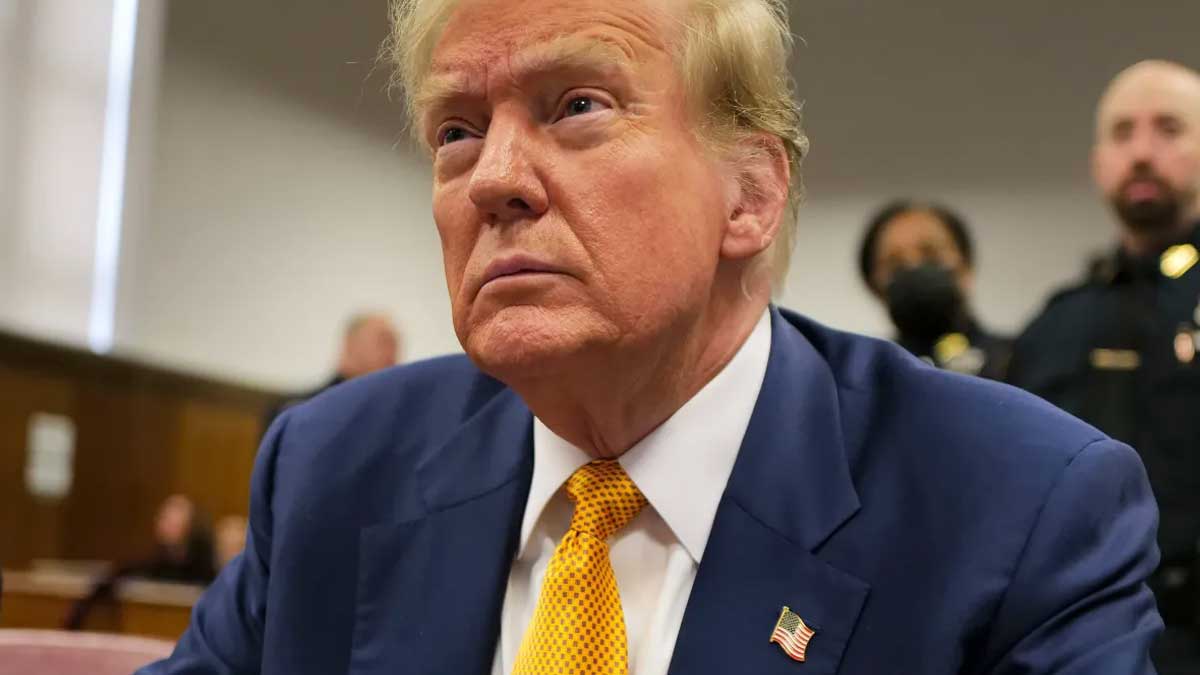- Home
- Billionaires
- Investing Newsletters
- 193CC 1000
- Article Layout 2
- Article Layout 3
- Article Layout 4
- Article Layout 5
- Article Layout 6
- Article Layout 7
- Article Layout 8
- Article Layout 9
- Article Layout 10
- Article Layout 11
- Article Layout 12
- Article Layout 13
- Article Layout 14
- Article Sidebar
- Post Format
- pages
- Archive Layouts
- Post Gallery
- Post Video Background
- Post Review
- Sponsored Post
- Leadership
- Business
- Money
- Small Business
- Innovation
- Shop
Recent Posts
Trump Seeks Conviction Overturn After Supreme Court Ruling

Former President Donald Trump is seeking to overturn his criminal conviction following a recent Supreme Court ruling that granted him partial immunity from prosecution. The high court’s decision raises questions about the evidence used against Trump and is likely to delay his sentencing.
On Monday, the Supreme Court ruled that presidents have “absolute immunity” from prosecution for actions within their “core constitutional powers,” such as appointing officials. This ruling means that Trump cannot be prosecuted for official acts but can still face charges for actions outside his presidential duties. Following this ruling, Trump’s lawyers requested to file a formal motion to dismiss his criminal conviction, which includes 34 felony counts of falsifying business records related to reimbursement checks sent to former attorney Michael Cohen for paying adult film star Stormy Daniels. They argue that some evidence used in the case should be excluded under the immunity ruling, including statements and ethics forms from his presidency.
Trump had previously unsuccessfully asked the court to delay his trial until the Supreme Court ruled on immunity. Now, he could challenge the use of statements he made in 2018, which Cohen interpreted as attempts to keep him loyal. There is uncertainty about whether Trump’s public statements will be covered by the immunity ruling, as the Supreme Court noted that a president’s public comments might sometimes fall outside official duties.
Trump might also claim that his reimbursement checks to Cohen, made after taking office, are protected by immunity. However, a federal judge previously ruled that the checks were personal and not part of his official duties. The next steps depend on Judge Juan Merchan, who may decide whether to consider Trump’s request to overturn the verdict now or during a formal appeal. Trump’s sentencing, scheduled for July 11, may be delayed by two weeks as the immunity dispute is considered. It is uncertain if Trump will face prison time, despite each count carrying a potential sentence of up to four years.
The Supreme Court’s immunity ruling could impact all four criminal cases against Trump. It is relevant to his federal case for attempting to overturn the 2020 election, which will return to a lower court to distinguish between official and unofficial acts. Trump has also invoked immunity in his federal case concerning White House documents and his state case in Georgia related to the 2020 election. These proceedings are likely to be prolonged as the immunity claims are litigated.
Trump was indicted in March 2023 in Manhattan over Cohen’s hush money payments and was found guilty in May after a trial. Cohen paid Daniels $130,000 before the 2016 election to silence her allegations of an affair with Trump, which he denies. Trump reimbursed Cohen in 2017 through checks labeled as legal services, which prosecutors argued were falsely categorized. Trump pleaded not guilty, maintaining that the payments were properly labeled. Cohen testified that Trump was directly involved in the hush money scheme. The Supreme Court’s recent ruling, which follows Trump’s frequent use of immunity claims, has faced significant criticism. Justice Sonia Sotomayor, dissenting, argued that the decision undermines the principle that no one is above the law.
Recent Posts
Categories
- 193cc Digital Assets2
- 5G1
- Aerospace & Defense46
- AI37
- Arts3
- Banking & Insurance11
- Big Data3
- Billionaires446
- Boats & Planes1
- Business328
- Careers13
- Cars & Bikes76
- CEO Network1
- CFO Network17
- CHRO Network1
- CIO Network1
- Cloud10
- CMO Network18
- Commercial Real Estate7
- Consultant1
- Consumer Tech180
- CxO1
- Cybersecurity68
- Dining1
- Diversity, Equity & Inclusion4
- Education7
- Energy8
- Enterprise Tech29
- Events11
- Fintech1
- Food & Drink2
- Franchises1
- Freelance1
- Future Of Work2
- Games141
- GIG1
- Healthcare78
- Hollywood & Entertainment186
- Houses1
- Innovation42
- Investing2
- Investing Newsletters4
- Leadership65
- Lifestyle11
- Manufacturing1
- Markets20
- Media193
- Mobile phone1
- Money13
- Personal Finance2
- Policy567
- Real Estate1
- Research6
- Retail1
- Retirement1
- Small Business1
- SportsMoney33
- Style & Beauty1
- Success Income1
- Taxes2
- Travel10
- Uncategorized8
- Vices1
- Watches & Jewelry2
- world's billionaires415
Related Articles
Trump Moves $4B Stake in Truth Social Parent, Stock Drops 6%
Donald Trump recently transferred his 57% stake in Trump Media & Technology...
By 193cc Agency CouncilDecember 20, 2024House Rejects Trump-Backed Funding Bill, Shutdown Looms
The U.S. House of Representatives rejected a new government funding bill on...
By 193cc Agency CouncilDecember 20, 2024Trump Named Time’s Person of the Year for Second Time
On Thursday, Time magazine honored Donald Trump as its “Person of the...
By 193cc Agency CouncilDecember 12, 2024Meta Donates $1 Million to Trump’s Inaugural Fund
Meta, the parent company of Facebook and Instagram, has confirmed a $1...
By 193cc Agency CouncilDecember 12, 2024















Leave a comment